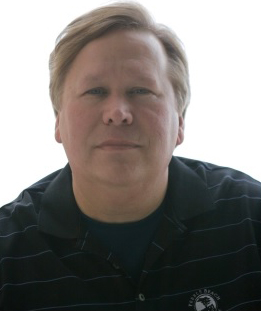For today's entry in the Friday Five interview series, we catch up with Jay Strack.
Jay Strack is an author and president and founder of Student Leadership University. His books include The Three Success Secrets of Shamgar and Leadership Rocks: Becoming a Student of Influence.
Today we chat with Jay about training teens for leadership, EPIC opportunities, and the importance of youth pastors.
When many parents, pastors, and church leaders think of young people, "leadership" is probably not the first word. They are likely thinking of management and keeping them out of trouble. But your ministry is proactive, training teens for leadership. Why this paradigm?

There is no question that our culture has literally put an all out blitz for our young people. Many parents, pastors, and Christian educators are playing "prevent defense." Everyone is being very defensive as they try to keep from losing our teens to one of the big three: alcohol/drugs, sexual promiscuity, or rebellion against spiritual things. The consequence is we are still losing our students ten yards at a time. After forty years of working with students, I am convinced that the best defense is a great offense. I want us to be the Peyton Manning of influence on our most cherished possessions. I want us to call the plays, move the ball, and control the clock. We have attempted to be proactive because I believe if students experience a sweet taste of the relevancy of Scripture and of the vision and adventure for their lives, they will hunger and thirst for more.
You've been doing this work for a while. What is your assessment of this generation of Christian young people?
It seems as though every decade those of us in youth related ministry dust off the Charles Dickens quote, "It was the best of times, it is the worst of times …." As usual this is true today. The culture is literally forcing this generation into its mold and squeezing life and hope out of their young lives. I have found that students are more responsive than ever to the good news of the gospel. They are very hungry for spiritual things but usually can't find the nourishment because of a lot of religious clutter. The evidence is in: students will listen attentively when they are given straight talk, that demands a verdict, especially when it is delivered by people who demonstrate genuine concern and interest in them. The leadership adage which states "we must earn the right to influence" is especially true with this generation. Students today are exceptionally bright and have access to more data, information, and noise than ever. They desperately need help connecting the dots and being provided a filter by which they can process and make the right choices. One of our favorite terms for middle and high school students is to help them "become fully convinced in their own minds."
Student Leadership University (SLU) helps young people find their calling. It seems we speak a lot to young people about following Christ, but don't often flesh out what that looks like specific to them and their unique calling. Why do you feel this is an important part of their development?
At SLU we believe that 1 Corinthians 14:8 is spot on: "Again, if the trumpet does not sound a clear call, who will get ready for battle?" We attempt to put students in a very distinctive unique environment. Since we are clear that our goal is to help them experience a 20-year quantum leap in learning how to think, dream, and lead; we deliberately put them in a corporate hotel, with world-class speakers, and a lot of behind the scenes opportunities. This could mean a leadership session at a shark tank, whale tank, or dolphin experience at SeaWorld, or a launch pad at Cape Kennedy, or the Pentagon, White House, or Congressional Briefing, or lessons on leadership on the beaches of Normandy, Churchill's cabinet war rooms, or walking the wall of ancient Jerusalem, or a lesson on the floor of the Roman coliseum, or serving at Give Kids the World for terminally ill children, serving in an orphanage in Kenya, or ministering in the slums of the planet. We call this EPIC opportunities—Experiential, Participatory, Image Rich, and Community Connecting. In this environment and background we want students to be able to experience a call on their life. Since this generation is more numerous, affluent, better educated, and more ethnically diverse than any other, students want an experience. They don't want to talk about something or hear about something—they want to do something. When students begin to hear and understand God's call with crystal-clear clarity they tend to be quite responsive. It is a very exciting moment when the light goes on and they understand that "if God is for me who can be against me." It is also our conviction that the Lord doesn't call us to a position per say—he calls us to a personal relationship with him. We believe this call is not merely a game changer—it is a life changer. We then try to equip students with the rules and tools of leadership and a biblical world-view that will allow them to live out this calling in an ever-changing society.
You also talk to young people about "shaping the character of their nation"—this is not usually something discussed in youth groups. Why is this part of your teaching?
Virtually everyone in key leadership roles at SLU has a hard-wired calling within them to help reach and keep this generation. We are very sympathetic to the difficult task of being a youth pastor. If only churches would wake up and realize that on one hand youth pastors are the least trained, least experienced, least compensated, and the least empowered members of their staff. While on the other hand, even the most trained and gifted youth pastors are overwhelmed by the hurt in the lives of their students due to what is happening in our families and culture. Still the majority of youth workers are bi-vocational or are volunteers. This is why we provide the Youth Pastor Summit, a free two-day conference which provides youth pastors and youth workers with tools and resources to equip them in impacting this generation. It seems as though whenever there is a significant budget challenge it is the youth/teen budget that is cut. I personally wish every church would have the same quote hanging in their main lobby for all members to see, like Sherwood Church in Albany, Georgia has, which reads "Whoever wants the next generation the most will get them." We need the church to invest in their youth pastors. SLU is trying to provide that training. We must also support those youth pastors when they attempt to move from the slick and gimmicks, to genuine Bible study and real ministry in the community. This generation responds to all of the social injustices of the world and they wonder why the church doesn't seem to get it.
If you could give one piece of advice to a youth pastor, parent, or influencer on the keys for preparing young people for their calling, what would that be?
I always try to remember that every student is a "jump ball." Every child can be reached. I know from my own personal background of six broken homes, physical and sexual abuse, learning disabilities, foster homes, and detention centers that the gospel can transform a life. I plead with everyone who has a student in their life that they care about: if they are still breathing, there is hope. I also would encourage all of those who care about students to remember the four greatest needs in helping students answer the calling of their life: a mentor, a model, a motivator, and a monitor. They need someone who cares for them, shares with them, and dares them to do better. The one thing that keeps all of us going is those students who not only are transformed but they become part of the answer. I truly believe that until Jesus returns, blows the whistle, and says "everyone out of the pool" we can make a tremendous imprint on this generation.
Daniel Darling is vice-president of communications for the Ethics and Religious Liberty Commission. He is the author of several books, including his latest, Activist Faith.










